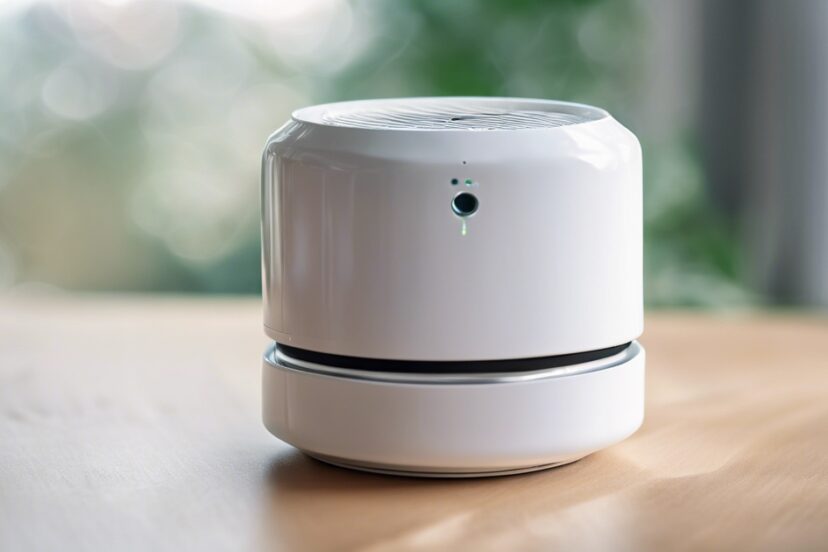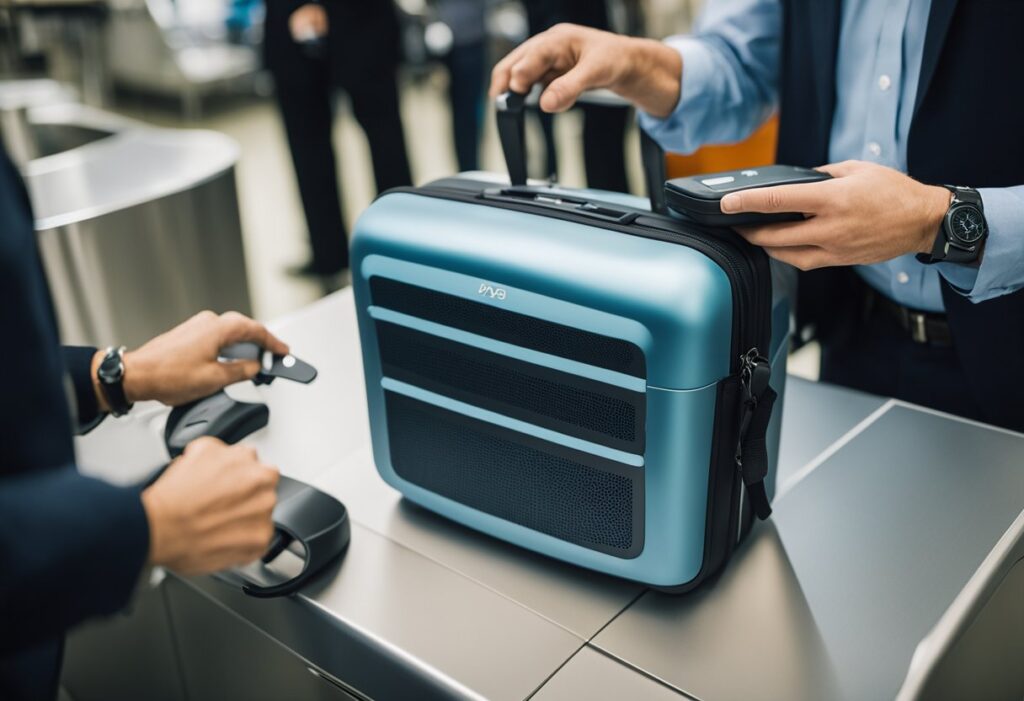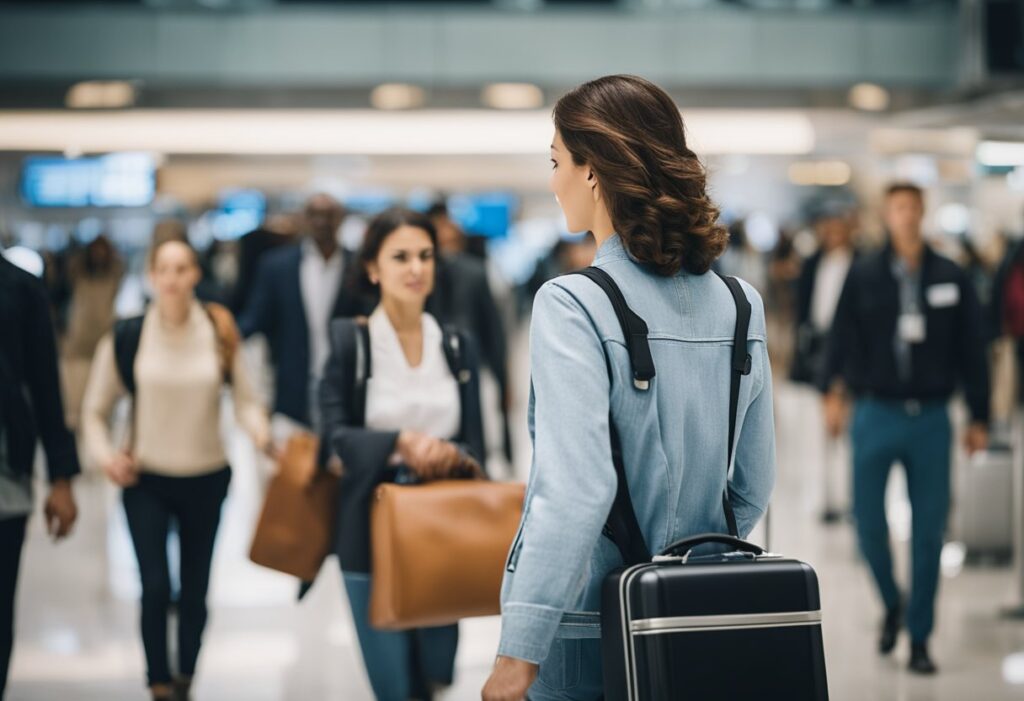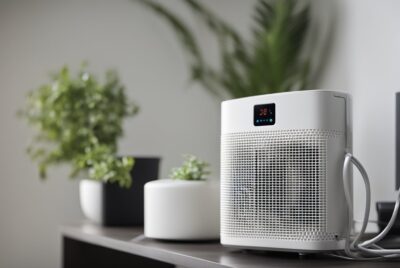Understanding Air Purifier Travel: Can You Carry It on a Plane?
TL;DR: Can You Bring an Air Purifier on a Plane? Yes, you can generally bring a personal air purifier on a plane, but it’s important to check with your airline for specific policies.
Air purifiers are subject to security screening and should be packed in carry-on luggage for easy access. If your device uses lithium batteries, ensure they comply with airline regulations.
Usage during the flight may be restricted, so follow cabin crew instructions. For a hassle-free experience, declare your air purifier at the security checkpoint and be mindful of noise levels to avoid disturbing others.
Introducing personal air purifiers as a way to combat air quality concerns during flights has become increasingly popular. However, many travelers are unsure whether they can bring air purifiers on planes or not.
In this article, I will answer the question of whether you can bring an air purifier on a plane, and what rules and guidelines you should follow.
Personal air purifiers are small, portable devices that filter the air around you, removing allergens, pollutants, and other harmful particles. They are particularly useful for people with respiratory issues, such as asthma or allergies, who may be sensitive to the air quality on flights.
However, before packing your air purifier in your carry-on or checked luggage, you must know the rules and regulations surrounding air travel.<
What Are Personal Air Purifiers?
Personal air purifiers are small, portable devices that can help improve air quality. They do this by removing airborne particles such as dust, smoke, and allergens.
They work by using a fan to draw air through a filter. This filter captures these particles and prevents them from circulating in the air. Some personal air purifiers use HEPA filters, which are designed to capture particles as small as 0.3 microns.
For travelers, personal air purifiers can be especially beneficial, particularly for those with respiratory issues. Airplanes, for example, can have poor air quality due to the recirculation of air and the presence of contaminants such as bacteria and viruses. Personal air purifiers can help reduce exposure to these contaminants and improve overall air quality.
While personal air purifiers can be effective, they are not a substitute for good hygiene practices and proper ventilation. It’s also important to choose a purifier that is appropriate for the size of the space in which it will be used.
Here is a table that summarizes some key features of personal air purifiers:
| Feature | Description |
|---|---|
| Size | Personal air purifiers are compact and portable, making them easy to travel with. |
| Filter Type | Some personal air purifiers use HEPA filters, which are designed to capture particles as small as 0.3 microns. |
| Noise Level | Personal air purifiers vary in noise level, so it’s important to choose one that won’t be disruptive to others. |
| Price | Personal air purifiers can range in price from less than $20 to several hundred dollars. |
Related Posts:
- Can You Leave an Air Purifier on All Night? Exploring Safety & Efficiency
- Best Place to Put an Air Purifier: Tips for Optimal Air Quality
- How Long to Run Air Purifier in Bedroom?
Types of Personal Air Purifiers
Each type has its own set of benefits and drawbacks, so it’s important to consider your specific needs before making a decision.
💡 Many different types of personal air purifiers can be used for travel. Consider your specific needs and preferences when choosing a device, and don’t hesitate to consult with a professional if you need help making a decision.
HEPA Filters
HEPA filters are a popular choice for personal air purifiers. They are highly effective at removing small particles from the air. These filters are designed to capture particles as small as 0.3 microns. This makes them ideal for removing dust, pollen, and other allergens from the air.
One thing to keep in mind with HEPA filters is that they can be quite bulky. If you’re looking for a portable air purifier for travel, you may want to consider a smaller device that uses a different type of filter.
Nebulizers
Nebulizers are another type of personal air purifier that can be used for travel. These devices work by creating a fine mist that helps to remove particles from the air. They are often used to treat respiratory conditions, but can also be effective at removing allergens and other particles from the air.
Nebulizers are typically small and portable, making them a great choice for travel. However, they do require a power source, so you’ll need to make sure you have access to an outlet or a battery pack.
Battery-Operated Devices
Finally, there are battery-operated personal air purifiers that can be used for travel. These devices are typically small and portable, making them easy to take with you on the go.
They are designed to remove particles from the air using a variety of different methods, such as electrostatic attraction or ionization.
One thing to keep in mind with battery-operated air purifiers is that they will need to be recharged periodically.
Make sure you have access to a power source or a portable battery pack to keep your device charged while you’re on the go.
| Type of Air Purifier | Pros | Cons |
|---|---|---|
| HEPA Filters | Highly effective at removing small particles from the air | Can be bulky and difficult to travel with |
| Nebulizers | Small and portable | Require a power source |
| Battery-Operated Devices | Small and portable, no need for power source | Need to be recharged periodically |
General Rules for Carrying Air Purifiers on Planes
As per my research, carrying personal air purifiers on planes is subject to the regulations of the Federal Aviation Administration (FAA) and guidelines of the Transportation Security Administration (TSA).
Additionally, airlines may have their policies regarding the carriage of air purifiers.
According to the FAA, personal air purifiers are not allowed on planes. However, some air purifiers have been tested and approved for use. It is recommended that travelers check with their airline before bringing a personal air purifier on a flight to ensure compliance with the airline’s policy.
The TSA guidelines state that air purifiers are allowed in both carry-on and checked bags. However, the air purifier must be battery-operated and must be placed in a protective case to prevent damage or accidental activation during the flight.
The TSA also recommends that travelers remove the batteries from the air purifier and pack them separately to prevent accidental activation.
To make the information easier to understand and more helpful for people, I have created a table summarizing the general rules for carrying air purifiers on planes:
| Entity | Rules |
|---|---|
| FAA | Personal air purifiers are not allowed on planes, but some have been tested and approved for use. |
| TSA | Airlines may have their policies regarding the carriage of air purifiers, so travelers should check with their airline before bringing a personal air purifier on a flight. |
| Airlines | Airlines may have their own policies regarding the carriage of air purifiers, so travelers should check with their airline before bringing a personal air purifier on a flight. |
💡 Travelers should be aware of the general rules for carrying air purifiers on planes, which include complying with the FAA regulations, TSA guidelines, and airline policies. By following these rules, travelers can ensure a safe and hassle-free travel experience.
Traveling with Personal Air Purifiers: Tips and Guidelines
Personal air purifiers can help alleviate some of these concerns, but there are some guidelines and restrictions to keep in mind.
💡 TIP: By following airline policies and TSA guidelines, and being mindful of noise levels and space limitations, you can make your air travel experience more comfortable and enjoyable.
Benefits of Using Air Purifiers on Planes
Air purifiers can help improve the air quality around you. They do this by filtering out allergens, pollutants, and other particles. This can be especially beneficial for those with allergies or respiratory issues. Additionally, air purifiers can help reduce the spread of airborne illnesses.
Challenges and Restrictions
Space limitations can be an issue, as many airlines have restrictions on the size of carry-on items.
Some airlines may also have specific policies regarding the use of personal air purifiers on board.
Check with your airline before bringing a personal air purifier on board. Some airlines may require that the purifier meet certain safety compliance standards, while others may prohibit the use of personal air purifiers altogether.
You should also follow TSA guidelines to ensure that your purifier is allowed through security.
To make traveling with a personal air purifier easier, pack it in your carry-on bag. Make sure it is easily accessible for security screening.
Also, be mindful of noise levels, as some air purifiers can be loud and disruptive to other passengers.
| Challenges and Restrictions | Tips |
|---|---|
| Space limitations | Pack the purifier in your carry-on bag |
| Airline policies | Check with your airline before bringing a purifier on board |
| Safety compliance | Ensure that the purifier meets safety standards |
| TSA guidelines | Follow TSA guidelines for carry-on items |
| Noise levels | Be mindful of noise levels and other passengers |
Safe Alternatives to Personal Air Purifiers
As personal air purifiers are currently not allowed on planes, there are alternative ways to maintain respiratory health during air travel. Here are some safe alternatives for travelers who cannot use personal air purifiers:
Face Masks
Wearing a face mask can help filter out some airborne particles and protect the wearer from inhaling them. The Centers for Disease Control and Prevention (CDC) says face masks are particularly effective at preventing the spread of respiratory viruses such as COVID-19. However, not all face masks are created equal. N95 respirators are the most effective at filtering out airborne particles, but they may not be suitable for everyone. Consult with a medical professional before using a face mask for respiratory protection.
Portable Nebulizers
Portable nebulizers are another alternative to personal air purifiers. They can help deliver medication directly to the lungs and alleviate symptoms of respiratory conditions such as asthma. However, not all portable nebulizers are allowed on planes. Be sure to check with the airline before bringing a portable nebulizer on board.
Saline Nasal Sprays
Saline nasal sprays can help moisturize nasal passages and relieve nasal congestion. They can also help flush out airborne particles and irritants.
Most people can use saline nasal sprays safely. However, it is important to follow the instructions on the packaging and consult with a medical professional if you have any concerns.
| Alternative | Pros | Cons |
|---|---|---|
| Face Masks | Effective at filtering out airborne particles | Not all face masks are created equal |
| Portable Nebulizers | Can deliver medication directly to the lungs | Not all portable nebulizers are allowed on planes |
| Saline Nasal Sprays | Can moisturize nasal passages and relieve nasal congestion | None |
Frequently Asked Questions
Are portable air purifiers allowed in carry-on luggage on flights?
Yes, portable air purifiers are allowed in carry-on luggage on flights. However, some airlines may have specific restrictions on the type of air purifiers that are allowed. You should check with the airline beforehand. Additionally, the Transportation Security Administration (TSA) has guidelines on carrying electronic devices on flights, which include air purifiers. It is recommended to pack the air purifier in a sturdy case to prevent damage during transit.
Can I pack an air purifier in my checked baggage when flying?
Yes, air purifiers can be packed in checked baggage when flying. However, you need to make sure that the air purifier is securely packed to prevent any damage during transit. It is also recommended to check with the airline beforehand to ensure that there are no specific restrictions on the type of air purifiers that can be packed in checked baggage.
Do airlines permit the use of personal HEPA filters during a flight?
Airlines have varying policies on the use of personal HEPA filters during a flight. Some airlines may permit the use of personal HEPA filters, while others may not. You should check with the airline beforehand to ensure that the use of personal HEPA filters is allowed during the flight.
How effective are travel air purifiers on airplanes?
Travel air purifiers can be effective in reducing the concentration of pollutants in the air on airplanes. However, the effectiveness of the air purifiers may vary depending on factors such as the size of the air purifier, the type of filter used, and the level of pollutants in the air.
Does TSA classify air purifiers as medical equipment for travel purposes?
No, TSA does not classify air purifiers as medical equipment for travel purposes. However, if you need the air purifier for medical reasons, it may be allowed on the flight. It is recommended to check with the airline beforehand to ensure that the air purifier is allowed on the flight.
Are wearable air purifiers like AirTamer permitted on board by airlines?
Airlines have varying policies on the use of wearable air purifiers like AirTamer on board.
Some airlines may permit the use of wearable air purifiers, while others may not.
Check with the airline beforehand to ensure that the use of wearable air purifiers is allowed during the flight.
| Air Purifier Type | Carry-on Luggage | Checked Luggage | Use During Flight |
|---|---|---|---|
| Portable | Allowed | Allowed | Check with airline |
| Personal HEPA filter | Check with airline | Check with airline | Check with airline |
| Travel | Allowed | Allowed | Check effectiveness |
| Medical | Allowed if required | Allowed if required | Check with airline |
| Wearable | Check with airline | Check with airline | Check with airline |
Portable air purifiers are allowed in carry-on and checked luggage on flights. However, it is important to check with the airline beforehand.
Airlines have varying policies on the use of personal HEPA filters and wearable air purifiers during a flight.
Travel air purifiers can be effective in reducing the concentration of pollutants in the air on airplanes. But, the effectiveness may vary depending on factors such as the size and type of filter used.
It is recommended to pack the air purifier securely to prevent damage during transit.






